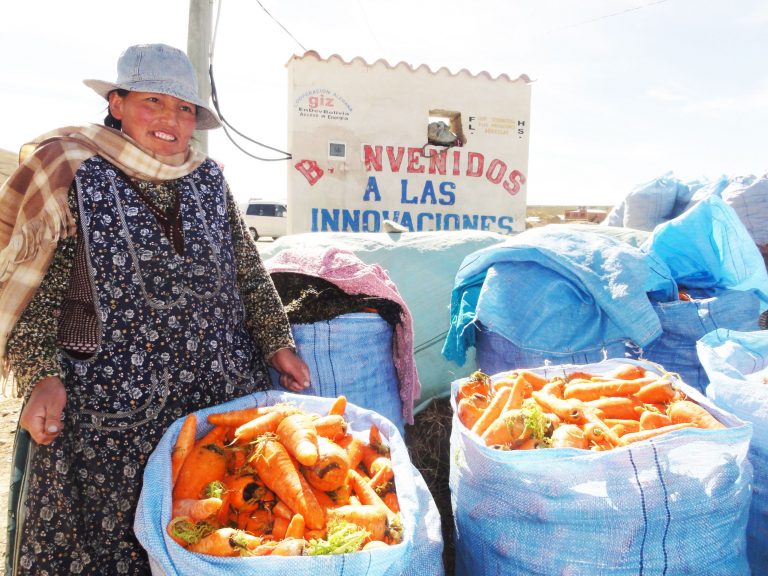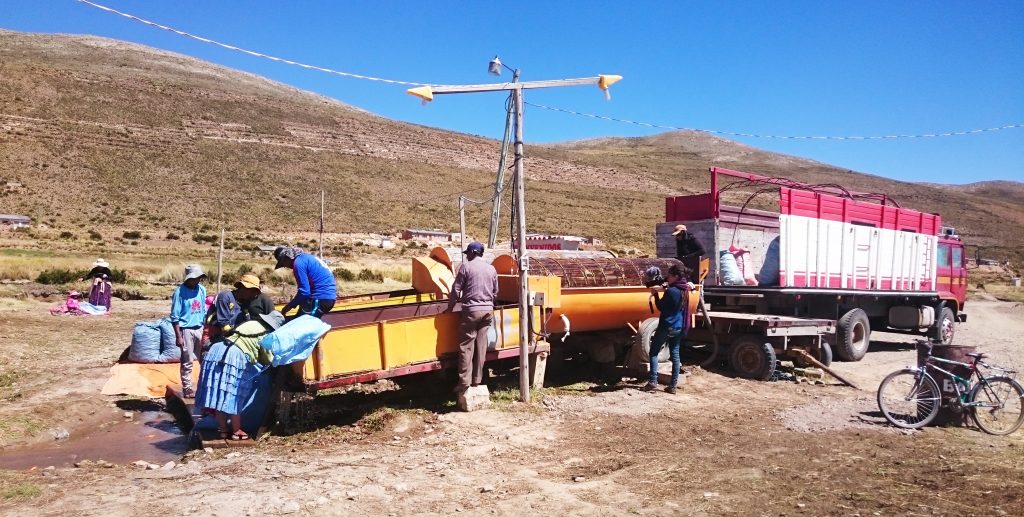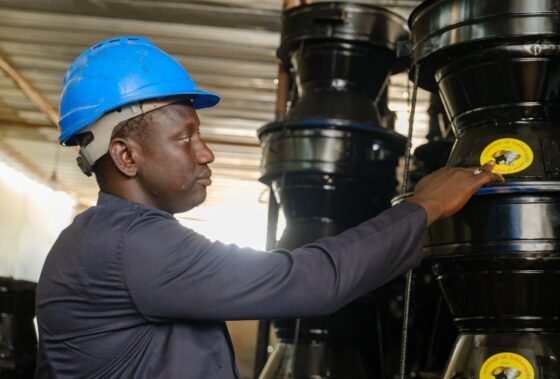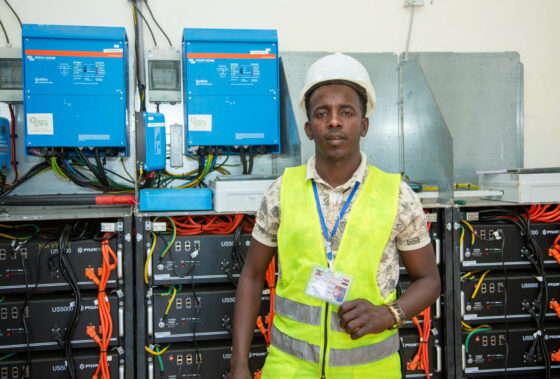How a carrot-washing machine has led to benefits for more than 100 families in Bolivia
Julio Helguero is cheerful and one of life’s optimists. He doesn’t stop smiling, not even when he recalls the countless mornings he spent wading through icy waters in the past. On the plateau of the Bolivian capital La Paz, the farmer used to spend hours in rivers, washing carrots by stepping on them. Using this method, two people could wash between 1,5 to 2.5 tons of carrots per day. “It was exhausting… like long-distance running”, he explains. So Julio designed a machine that would make washing carrots easier and bring prosperity to the small farming community of Mantecani, and others.

The huge machine was powered via a household connection to the national grid
But it wasn’t as easy as he had imagined: At first, the huge carrot-washing machine was powered via a household connection to the national grid. This meant that the machine overheated easily, damaging its engines. Julio, by then the president of Mantecani’s farming association, went in search of solutions. Through the municipality, he made contact with EnDev Bolivia. EnDev provided technical support to ensure that technical specifications were correct and the machine could be used safely. Additionally, EnDev carried around two thirds of the investment costs for a much needed voltage transformer. Having installed the transformer and electricity meter, the machine now washes an average of 40 tons per day.
Instead of four hours, the carrot wash now takes just 30 minutes for a single load.
Julio Helguero
Julio explains: “The machine works perfectly 24 hours a day. Not only does this mean that people don’t have to clean carrots manually in ice cold water, it also saves time: Instead of four hours, the carrot wash now takes just 30 minutes for a single load. People can use the time to grow and harvest other vegetables – and still take their washed carrots to the market.”

EnDev Bolivia supported the introduction of 2,200 productive use technologies
News of the larger scale machinery quickly spread beyond Mantecani. The result? Since 2012, small and medium-sized enterprises have replicated this idea country-wide thus contributing to the productive use of energy. EnDev Bolivia provides training, financial assistance, economic incentives, and connects technology providers with trade associations and entrepreneurs.
Between 2009 and 2019, EnDev Bolivia supported the introduction of 2,200 productive use technologies such as water pumps, milking machines and cooling tanks, or grain mills.



